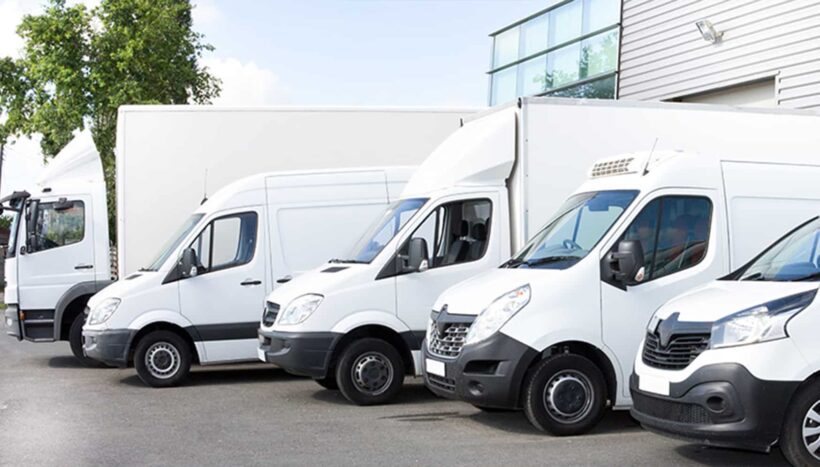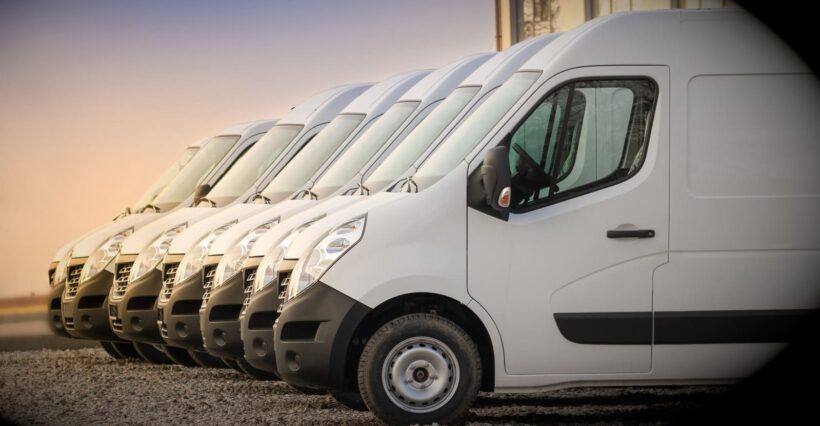If you’re going to be renting a van, it could be for any number of reasons, but you will fall into one of two categories. There’s private and there’s professional, and they have certain things in common but also plenty of differences, so let’s look at them separately.
Private Hire

Everyone needs van hire services from time to time. It could be for moving house, when you’ve decided to save money on professional moving firms and do it yourself. If you are physically fit and not averse to a bit of heavy lifting, hiring a van can be the ideal solution. Your car is not big enough, and anyway, carting things around with all the palaver of folding seats down and stashing the back shelf somewhere can lead to damage. We’ve all seen little hatchbacks labouring around the streets with a desk or something turned upside down, shoved into the back by hook or by crook, part of it sticking out precariously and possibly illegally. Vans are working tools. People love their cars, but vans, not so much. They’re practical items to be counted along with the workbenches and tools and computers, not included in the cherished items list. They are designed to withstand a bit of heavy treatment.
Vans come in various sizes, and many moves can be achieved with a van that doesn’t require a category of driving licence that you don’t have. You may even have to do two trips, but provided you’re not moving more than a few miles, it’s doable.
This assumes you don’t have a huge amount of furniture: no weighty antique wardrobes or pianos to deal with. Most beds are easy enough to break down and carry if there are two of you, although if yours is grand enough for the Taj Mahal, with a vast headboard and surrounding woodwork in the shape of a Spanish galleon, you could have a problem. Mattresses are easy enough once you get used to it, and they bend, so getting them around corners, even on staircases, can be done.
So here’s the drill: imagine all your stuff and how much space it’s going to take when it’s piled up six feet high.
It doesn’t have to be a house move, of course. You might be a musician with too much equipment to fit in the sporty car that suits your image. Or you might be doing some major replanting in the garden and there are large plants and water features to transport.
Whatever the project, get yourself a van big enough for the job.
Some of the larger vehicles have what is called a Luton, which is an extra compartment that projects over the top of the cab, and if you get one of these, you may decide to put the more fragile items up there, away from the hurly burly of the floor. Speaking of which, don’t allow any hurly burly to develop, because movement is how things get broken. Use rope to secure anything you think might move, anchored on some kind of supporting strut.
One golden rule of loading and unloading a van: never go in or out of the building empty-handed. If you’re loading and you have to break off and do something else, take something out to the van on the way. If you’re unloading and you decide to have a short rest and a glass of water, take something in with you. A lamp here, a box of books there: it all adds up and will be one less trip right at the end when you’ve had enough and want to break out the beer and takeaway pizza.
Business Van Hire

If you have read all of the above with a sense of being told what you already know, perhaps you are in the haulage business yourself, or some line of work which involves carting bulky material or equipment. Maybe one of your vehicles is out of commission and you need a van to tide you over till it gets fixed.
In this case, you know all the basics of loading and unloading and what you’re concerned with is getting the right vehicle. This might be the perfect opportunity to try something different: maybe something bigger or smaller than your current fleet, to see what effect that has on your efficiency or fuel consumption, for instance. Long wheelbase, short or in the middle? British, European or Japanese?
Here’s an idea: how about trying an electric vehicle? Not too far in the future we’re all going to have to abandon our fossil-fuelled polluters and use EVs, so this is an opportunity to see how they have developed. We are accustomed to seeing electric cars on the road, and charging stations are springing up in some surprising places, so how convenient are EVs now and how are they going to be in three or four years? Hiring a van could be the first step on your journey to running a modern, ecologically friendly fleet.

If you’re happy to stick with petrochemicals for now, another option at this point is to try a different marque. Some of the motoring world’s more prestigious names make vans and trucks, and if you’ve ever wondered how good they are – and even if they are different in any significant way – now you can find out.
Even among the run-of-the-mill models, why do some of your peers and competitors use a particular one? Why do you, for that matter? Perhaps that new van has redeeming features like excellent fuel consumption, exceptional reliability or a nice turn of speed when you need it. It’s good information to have, and whether you buy one next or not, at least you can have a good perspective on what you’ve already got.
These are just some tips for a successful personal and/or professional van hire experience. Follow the above advice and you’ll have a stress free experience from start to finish. Always remember to read the fine print and don’t overlook the reviews as these are essential when it comes to getting an insight into a specific company’s customer care record.

